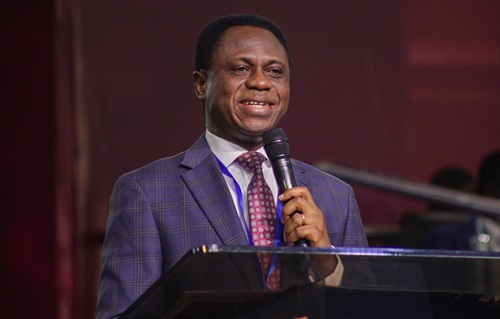
Election not religious contest - GPCC to political parties
The Ghana Pentecostal and Charismatic Council (GPCC) has admonished political parties not to make this year’s general election a religious contest.
It said it had observed with grave concern recent religious and sectarian campaign messages being advocated and promoted on political party platforms and at religious gatherings.
A statement by the National Executive Council (NEC) of the GPCC made available to the Daily Graphic said it was a fact that for the first time in the chequered history of the country, the two most popular political parties in the 2024 general election – the National Democratic Congress (NDC) and the New Patriotic Party (NPP) -- would be featuring presidential candidates from the Christian and Muslim faiths, respectively.
Aware
The GPCC, it said, was deeply aware of the potential tensions, divisiveness and conflicts religion in politics and governance could evoke in a highly charged and keenly contested election such as the 2024 general election in Ghana.
The GPCC explained that examples were not far-fetched regarding the havoc that poorly managed religious and ethnic incitements had caused across the West Africa sub-region and the African continent.
“The GPCC has, therefore, discussed and agreed as a matter of principle, and made it an unwritten policy, to avoid making this year’s general election a religious contest between Christian and Moslem presidential candidates.
“We have communicated this policy position to all our regional councils in all the 16 regions of Ghana. It is worth noting that the GPCC has church denominations of well over 300 member churches and para-church organisations across Ghana with aggregate members in excess of 10 million by conservative estimates.
“Conservatively, this constitutes about a third of Ghana’s population,” it said.
Peace
It said as a Christian ecumenical council, it believed in peaceful coexistence and inclusivity for all persons in the country, irrespective of religion, ethnicity, gender or social class, and that a national government must serve all citizens, regardless of their background, ethnicity, class or beliefs.
To that end, the GPCC said political party campaigning must focus on promoting policies that prioritised community and other stakeholder needs, social equity, transparency and accountability in governance.
“Our politics must foster an inclusive environment where every voice is heard and valued, and where decisions are made based on reason, evidence, and the common good, rather than on religious, ethnic, gender or social classes.
Unacceptable
“We, therefore, find it unacceptable and unhelpful that some parliamentary candidates and religious leaders are campaigning and advocating for voting by the electorate to be along religious lines. It must be stated that none of the presidential candidates is standing for election on the ticket of a religious ideology,” it stressed.
“All the political parties and independent candidates are contesting on the basis of policies and ideas that will bring socio-economic and other benefits to the citizens and the nation as a whole,” it added.
The council said campaign messages must seek to address the daily needs of the citizens, businesses and industries.
“The leadership of GPCC encourages every Ghanaian who is qualified to vote to do so as a civic responsibility to God and country. We therefore admonish that all prospective voters should be guided by their conscience, trust, confidence and godly values they identify in the candidate of choice”.
Together as a country, it said, Ghanaians could build a future that reflected their shared values of respect, integrity and progress.
The statement requested all to unite in working towards a brighter and more equitable tomorrow for the current and future generations.
